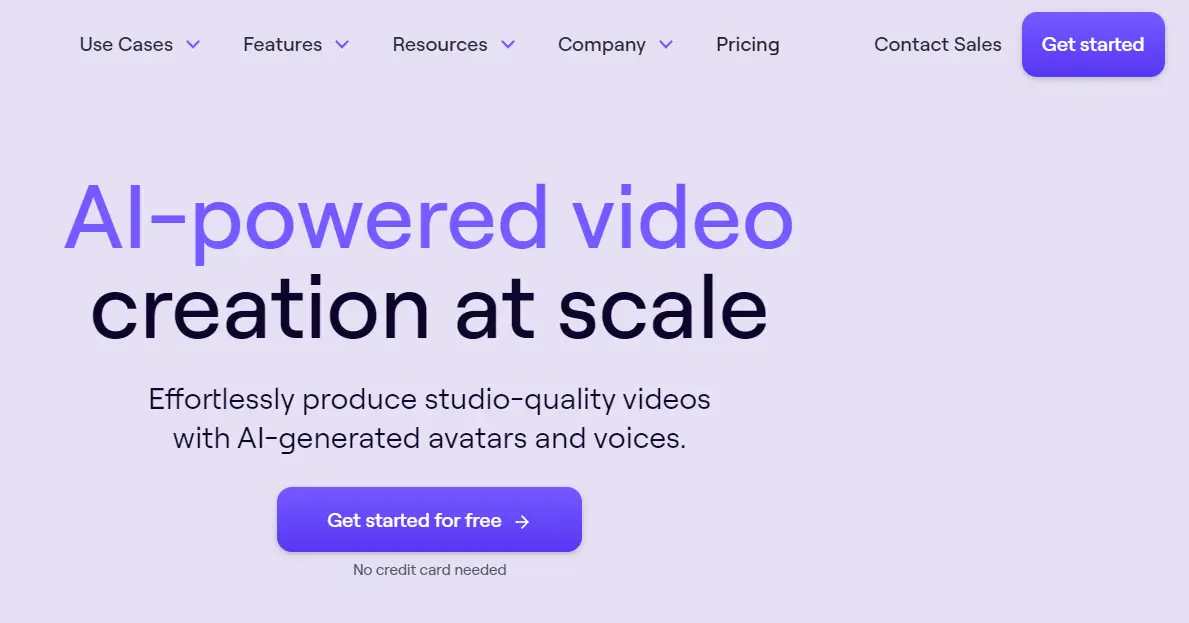Guide to Heygen Video Editor: Revolutionizing Video Editing
Introduction
Heygen Video Editor
In the world of digital media, video content reigns supreme. Whether you’re a seasoned professional or a novice content creator, having the right video editing tool can make a significant difference. Heygen Video Editor is one such tool that has been gaining popularity for its user-friendly interface and powerful features. This comprehensive guide will delve into everything you need to know about Heygen Video Editor, from its basic functionalities to advanced editing techniques.
Table of Contents
| Heading | Sub-Topics |
|---|---|
| Introduction to Heygen Video Editor | Overview, Key Features, System Requirements |
| Getting Started with Heygen | Installation Guide, Initial Setup, User Interface Overview |
| Basic Video Editing Techniques | Cutting and Trimming, Adding Transitions, Basic Effects |
| Advanced Editing Features | Multicam Editing, Color Grading, Key framing |
| Audio Editing in Heygen | Adding and Editing Audio Tracks, Using Audio Effects, Syncing Audio |
| Text and Titles | Adding Text, Title Templates, Text Animations |
| Working with Visual Effects | Applying Filters, Using Green Screen, Motion Tracking |
| Using Templates and Presets | Overview of Templates, Customizing Presets, Creating Your Own Templates |
| Collaborative Features | Sharing Projects, Working with Teams, Cloud Storage Integration |
| Exporting and Sharing Videos | Export Settings, Optimizing for Different Platforms, Sharing Directly from Heygen |
| Tips for Efficient Workflow | Keyboard Shortcuts, Organizing Your Workspace, Using Proxy Files |
| Integrations and Extensions | Integrating with Other Software, Using Plugins, Extending Heygen’s Capabilities |
| Heygen for Social Media Content | Creating Videos for YouTube, Instagram, TikTok |
| Heygen for Professional Projects | Corporate Videos, Marketing Campaigns, Film Editing |
| Troubleshooting Common Issues | Performance Issues, Crashes and Freezes, File Compatibility |
| Heygen Community and Support | Official Resources, Online Communities, Tutorials and Courses |
| Future of Heygen Video Editor | Upcoming Features, Community Contributions, Heygen in Professional Use |
| FAQs | Frequently Asked Questions about Heygen Video Editor |
| Conclusion | Summarizing Key Points, Encouraging Exploration of Heygen |
Introduction to Heygen Video Editor
Overview: Heygen Video Editor is a cutting-edge video editing software designed to cater to the needs of both beginners and professionals. It offers a plethora of features that simplify the editing process while providing the tools necessary to create high-quality videos.
Key Features:
- Intuitive user interface
- Advanced video and audio editing tools
- Support for 4K resolution
- Multicam editing
- Color grading and correction
- Extensive library of effects and transitions
- Collaborative editing features
System Requirements: To ensure optimal performance, Heygen Video Editor requires:
- Operating System: Windows 10 or later, macOS 10.14 or later
- Processor: Intel Core i5 or equivalent
- RAM: 8GB (16GB recommended)
- Graphics: NVIDIA GTX 1060 or equivalent
- Disk Space: 2GB for installation
Getting Started with Heygen

Installation Guide:
- Visit the official Heygen website.
- Download the installer for your operating system.
- Run the installer and follow the on-screen instructions to complete the installation process.
Initial Setup: Upon launching Heygen for the first time, you’ll be guided through an initial setup process, where you can customize settings according to your preferences. This includes setting up your project folders, choosing default templates, and configuring hardware acceleration.
User Interface Overview: Heygen’s interface is designed to be intuitive and user-friendly. Key components include:
- Timeline: Where you assemble your video clips and edit them.
- Preview Window: Allows you to view your project in real-time.
- Media Library: Stores all your imported media files, including videos, audio, and images.
- Tool Panels: Provide access to various editing tools and effects.
Basic Video Editing Techniques
Cutting and Trimming: Cutting and trimming are fundamental editing techniques. Use the razor tool to cut your clips and the trim tool to remove unwanted sections.
Adding Transitions: Transitions can enhance the flow of your video. Heygen offers a variety of transitions, including fades, wipes, and slides. Simply drag and drop a transition between clips on the timeline.
Basic Effects: Apply basic effects such as brightness, contrast, and saturation adjustments to improve the visual quality of your video. Heygen’s effects panel makes it easy to apply and adjust these effects.
Advanced Editing Features
Multicam Editing: Heygen supports multi-cam editing, allowing you to sync and edit footage from multiple cameras seamlessly. This feature is particularly useful for live events and interviews.
Color Grading: Color grading can dramatically change the mood and tone of your video. Use Heygen’s color grading tools to adjust hue, saturation, and luminance. You can also apply LUTs (Look-Up Tables) for consistent color grading.
Key framing: Key framing allows you to create animations and dynamic effects. By setting key frames at different points on the timeline, you can control parameters such as position, scale, and opacity.
Audio Editing in Heygen
Adding and Editing Audio Tracks: Import audio tracks into your project and place them on the timeline. Heygen provides tools for cutting, trimming, and adjusting the volume of audio tracks.
Using Audio Effects: Enhance your audio with effects such as reverb, equalization, and noise reduction. These tools help improve audio quality and add depth to your soundtracks.
Syncing Audio: Syncing audio with video is crucial for professional-quality projects. Use Heygen’s syncing tools to align audio tracks with video clips accurately.
Text and Titles
Adding Text: Add text overlays to your videos using Heygen’s text tool. Customize the font, size, color, and position to match your video’s style.
Title Templates: Heygen offers a variety of title templates that you can customize to fit your needs. These templates save time and ensure consistency across your project.
Text Animations: Animate your text to make your videos more engaging. Heygen provides several text animation presets, or you can create custom animations using key frames.
Working with Visual Effects
Applying Filters: Filters can change the overall look of your video. Heygen’s filter library includes artistic effects, color adjustments, and more. Apply filters directly to your clips, or use adjustment layers for greater control.
Using Green Screen: Heygen’s chroma key feature allows you to replace green screen backgrounds with any image or video. This is ideal for creating professional-looking compositions.
Motion Tracking: Motion tracking enables you to follow objects or subjects in your video. This feature is useful for adding text or effects that move with your subject.
Using Templates and Presets
Overview of Templates: Heygen comes with a wide range of templates for different types of projects, including intros, outros, and social media posts. These templates are fully customizable.
Customizing Presets: Adjust preset settings to fit your project’s needs. Save your customized presets for future use to maintain a consistent style across your videos.
Creating Your Own Templates: Create and save your own templates to streamline your workflow. Custom templates can be reused in multiple projects, saving you time and effort.
Collaborative Features
Sharing Projects: Share your projects with team members for collaborative editing. Heygen supports project sharing via cloud storage services.
Working with Teams: Collaborate with your team in real-time. Heygen’s collaborative features include project versioning, comments, and task assignments.
Cloud Storage Integration: Heygen integrates with popular cloud storage services, allowing you to save and access your projects from anywhere.
Exporting and Sharing Videos
Export Settings: Choose the right export settings for your project. Heygen offers presets for different platforms, including YouTube, Vimeo, and social media.
Optimizing for Different Platforms: Optimize your videos for different platforms by adjusting resolution, bitrate, and file format. This ensures your videos look great no matter where they’re viewed.
Sharing Directly from Heygen: Share your videos directly from Heygen to popular social media platforms. This feature simplifies the sharing process and helps you reach your audience faster.
Tips for Efficient Workflow
Keyboard Shortcuts: Learn and use keyboard shortcuts to speed up your editing process. Heygen allows you to customize shortcuts to suit your workflow.
Organizing Your Workspace: Keep your workspace organized by creating folders for your media files and using labels to categorize clips.
Using Proxy Files: Use proxy files to improve performance when editing high-resolution footage. Proxy files are lower-resolution versions of your clips that make editing smoother.
Integrations and Extensions
Integrating with Other Software: Heygen integrates with various software tools, including Adobe Creative Cloud and da Vinci Resolve. This allows you to use Heygen alongside other editing tools seamlessly.
Using Plugins: Extend Heygen’s functionality with plugins. Explore the Heygen plugin marketplace to find plugins that add new features and capabilities.
Extending Heygen’s Capabilities: Customize Heygen to fit your needs by integrating third-party tools and scripts. This flexibility makes Heygen a versatile
